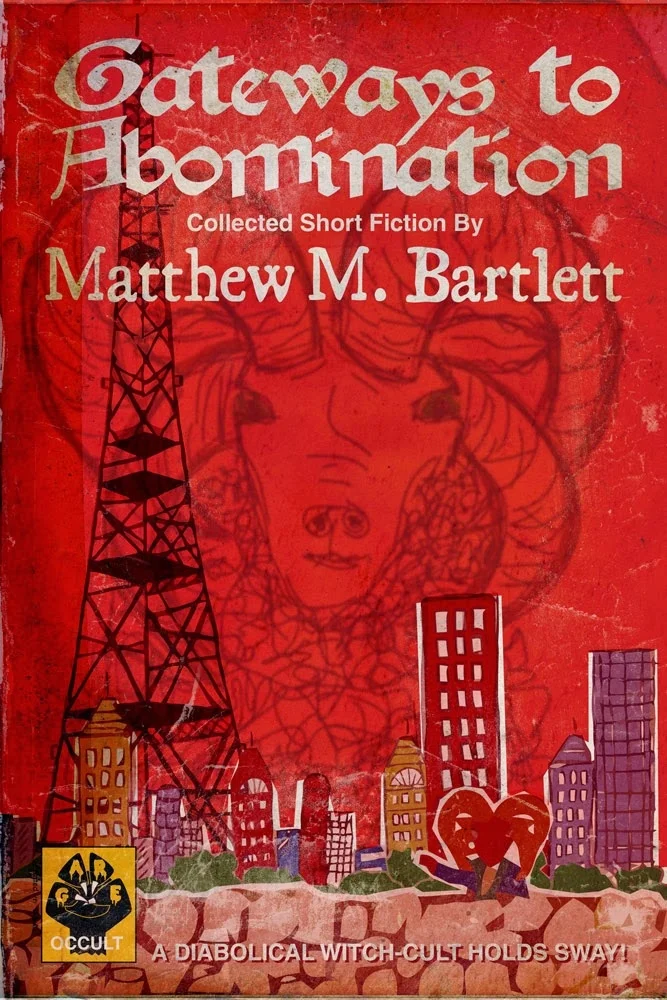Book Review : Michael Wehunt - Greener Pastures (2016)
Few newcomers have generated such a buzz through their participation to short story anthologies the way Michael Wehunt has over the last couple years. Anthologies are weird because they're built for you not to read them entirely. When you're looking down the barrel of a 400-pages mammoth of stories about, let's say ghosts, written by 80% complete unknowns, it's OK to pick your battles. For Michael Wehunt, to not only have been read, but to have been singled out in publications such as Aghast and Aickmann's Heirs, was an achievement in itself. Curiosity got the best of me and I decided to take a swan dive into Wehunt's debut collection Greener Pastures for horroctober. While they are mostly collected stories he published online and in anthologies/magazines (not necessarily a good thing), Wehunt's greener pastures are merely a series of appetizers from a formidable talent. They imply a future of terrifying possibilities.
My two favorite stories in Greener Pastures were the title one and October Film Haunt: Under the House. One could argue they're the most classically told stories in the collection, making them easier to like and it wouldn't be wrong. The way they deal with the unknown in simple, yet efficient and powerful. Greener Pastures was particularly creepy because of its defamiliarizing nature. It's not the darkness that's terrifying, but the familiar elements that inhabit it, which either project a carnivorous relationship between the characters and the darkness or their own loss of sanity. October Film Haunt: Under the House is a love letter to found footage horror movies which appealed to my geekier side. Engineering terror lies in reader's interpretation a lot and October Film Haunt: Under the House celebrates this idea very cleverly blurring the line between the film and its interpretation by the characters.
Now, these two stories were quite unlike the rest of Greener Pastures. There are recurring themes and patterns to Michael Wehunt's fiction that the title story and October Film Haunt: Under the House barely flirt with: death, absence, loneliness, widowhood. These themes are not treated like spectacle like in most horror stories, but with a quiet and solemn reverence, which I thought gave Michael Wehunt's writing such a strong identity. Stories like A Discreet Music and Beside Me Singing in the Wilderness explore the isolation and the tragic thinning of reality of old age. They are very much horror stories, yet are rooted in inevitable issues every human being dreads. It makes for a uncomfortable yet visceral reading experience. They're great stories, but it's impossible not to project your own dread upon them. Wehunt remythologizes ideas that have been stripped of their romance, which is both empowering and terrifying at the same time.
The collected stories format makes it tougher on the reader because experience and exploration are shoved down our throats. While Michael Wehunt is a strong and versatile storyteller, Greener Pastures doesn't completely avoid the issue and it tested my patience here and there, ranging from the super intimate (The Inconsolable, A Discreet Music) to the weird and spectacular (Dancers, Deducted from your Share in Paradise). I don't mind exploration, but it thought it trumped vision and voice at times in Greener Pastures. And Wehunt definitely has both. His writing is at its best when it uses naturalistic undertones to create dread. His voice is at its most commanding when it deals with the disintegration of characters' reality. Michael Wehunt's fiction draws a map from the reader's reality to his terrifying dreamscapes. The frightening thing about reading Wehunt is thinking it could happen to YOU.
So, is Michael Wehunt the real thing or what? Greener Pastures was a fun read but I believe it's still early to call Wehunt the next great voice in weird fiction. He's a super talented storyteller and don't get me wrong, he can knock it out of the park. I just feel like he's merely finding his voice and that he's still exploring his narrative boundaries. He's a classical storyteller, too which can explain why people are so enthusiastic about his work. I liked Greener Pastures because it foreshadowed a world of possibilities for Wehunt. While I was not a fan of the wide, exploratory scope of the stories, every one of them had the potential to be a novel in themselves and I think long form is really where Wehunt's writing is going to shine. I'm not dismissing Michael Wehunt. I think you should definitely read Greener Pastures if you're looking for stories about death, absence and loneliness. It gets the job done. I believe Wehunt is still a prospect, though. Not yet an all-star.






